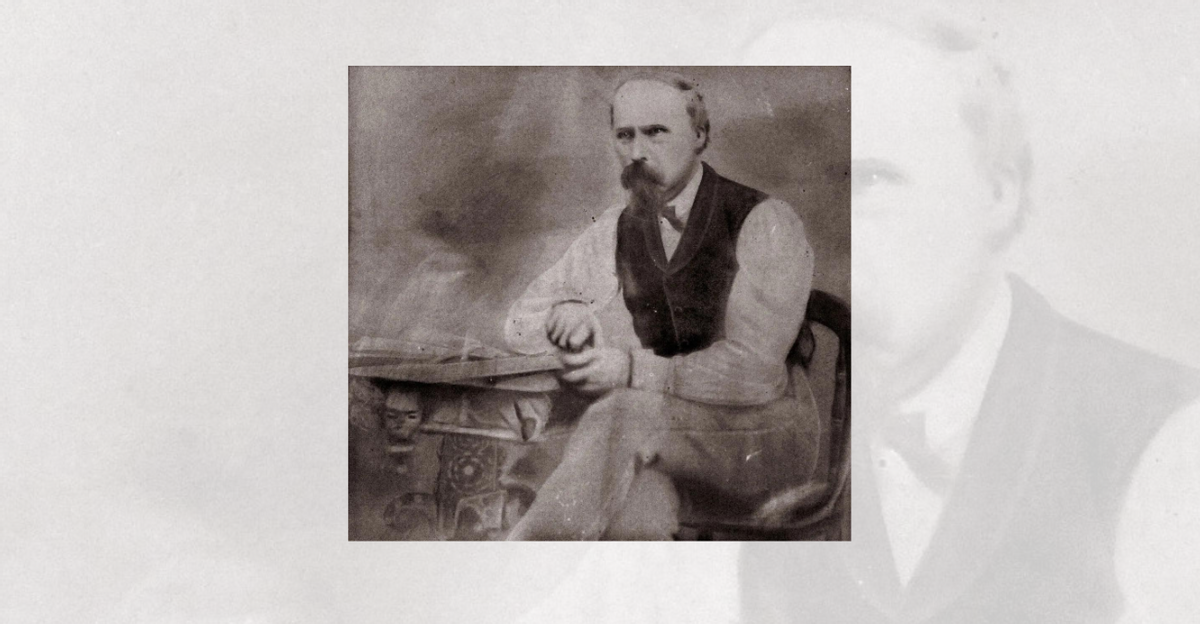After shooting U.S. President Abraham Lincoln on April 14, 1865, during a production of "Our American Cousin," John Wilkes Booth lept from the president's balcony seats to the stage below and yelled "sic semper tyrannis." Booth broke his leg in the process, but managed to escape and meet up with co-conspirator David Herold.
Herold and Booth, among others, had been part of a group that planned a failed plot to kidnap Lincoln. Herold, following the assassination, was responsible for finding Booth medical care, and he accompanied him to the house of a Maryland doctor, Samuel Mudd.
There, Mudd set Booth's leg and gave him and Herold "food, lodging and fresh horses," allowing Booth to continue to hide from authorities for nearly two weeks. As described by Mudd descendent Robert Summers, Mudd was charged with aiding and abetting a conspiracy to kill Lincoln and subsequently convicted:
Many people were arrested during the Government’s investigation of the assassination, but ultimately only eight of these, including Dr. Mudd, were put on trial by a Military Commission. The Court didn’t believe Dr. Mudd had anything to do with the assassination, but thought he was guilty of aiding Booth’s escape by not alerting the authorities to Booth’s presence at his farm.
All eight were found guilty. The four whom the military commission believed had actually helped plan and participate in the assassination were executed. The other four, including Dr. Mudd, were sent to Fort Jefferson, a military prison located on a small Gulf of Mexico island about 70 miles west of Key West, Florida.
The conviction on June 29, 1865, was controversial, and revolved not around questions of Mudd's medical treatment of Booth, but around aiding his escape and the fact that Mudd did not alert authorities to Booth's presence. Key issues during the trial revolved around Mudd's alleged foreknowledge of a plot against Lincoln and his previous association with Booth. As reported by The New York Times in 2002:
Though Mudd proclaimed his innocence in the assassination plot, testimony during his trial for conspiracy revealed that he had met Booth at least once prior to the murder, and setting Booth’s broken leg did him no favors. His fate sealed, Mudd received a life sentence in federal prison.
Mudd was sentenced to life with hard labor at a military prison on a small island 70 miles west of Key West, Florida. While a prisoner, he was lauded for medical care he provided during an outbreak of yellow fever.
Via a well-connected defense attorney, Mudd aggressively petitioned U.S. President Andrew Johnson for a pardon, which he received during the final days of his presidency, on Feb. 8, 1869, in part based on his actions during that outbreak. As reported by a New York paper, The Sun, when the news broke:
The President has directed the Attorney General to pardon Dr. Mudd, who, it will be remembered, was convicted by the military commission In 1865, and sentenced to imprisonment and labor at the Dry Tortugas for life [...].The recommendations for the pardon of Dr. Mudd are very strong, one alone containing over 600 names, being those of every officer and soldier on duty at the Dry Tortugas.
While a pardon restored some of Mudd's Constitutional rights and freed him from prison, it did not remove or overturn his conviction for participating in a conspiracy to assassinate Lincoln. His descendants have been fighting, unsuccessfully, to have the family name cleared by nullifying that conviction for decades.
In response to efforts by Mudd's grandson Dr. Richard Mudd, two U.S. presidents — Jimmy Carter and Ronald Reagan — have stated they agree with Mudd's innocence, but have no ability to overturn the military commission's conviction, as described in the grandson's 2002 obituary:
In July 1979, Richard Mudd's efforts brought a two-page, single-spaced letter from President Jimmy Carter supporting Dr. Mudd's position on his grandfather's innocence.
But Carter noted regrettably that "he had been advised the findings of guilt and the sentence of a military commission that tried Dr. Samuel Mudd are binding and conclusive judgments and there is no authority under the law, by which, I, as president, could set aside his conviction."
In December 1987, Dr. Mudd received a note from President Ronald Reagan that also lamented that the law precluded changing convictions from the military court.
"In my efforts to help," Reagan wrote, "I came to believe as you do that Dr. Samuel Mudd was indeed innocent of any wrongdoing."
